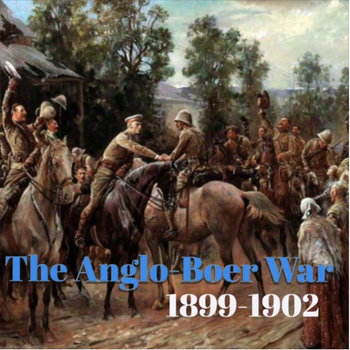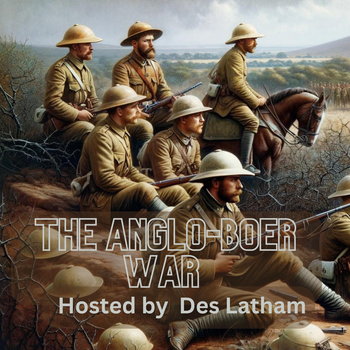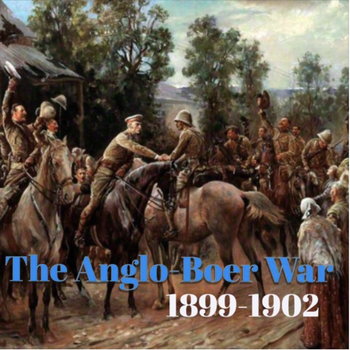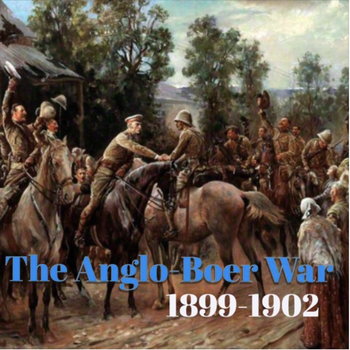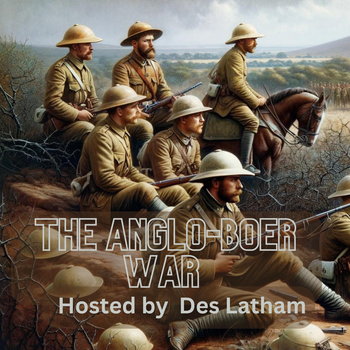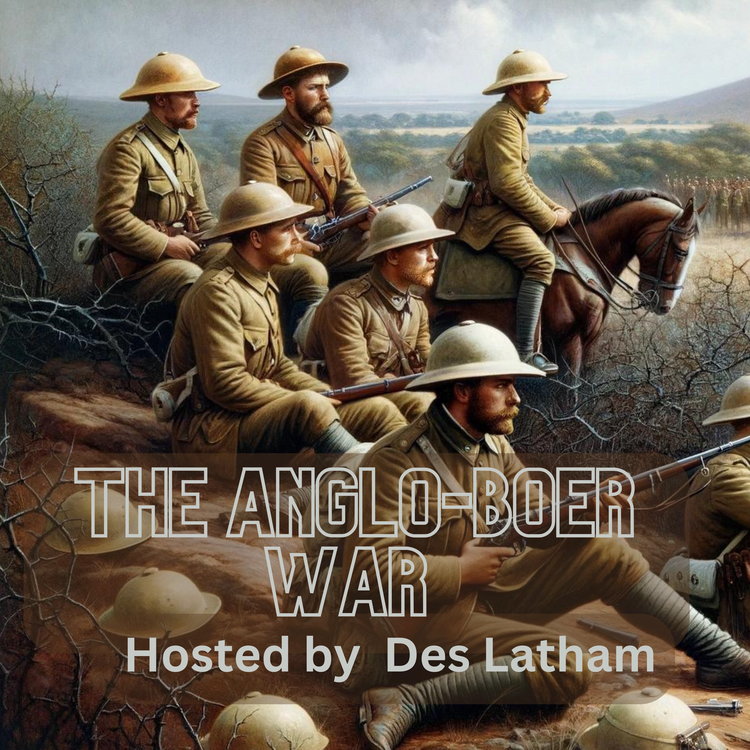
Episode 93 - The ruinous war costs 1.25m pounds a week & Lord Kitchener receives a telegram
Loading player...
The winds of war have been blowing cold across the veld, shrivelling the corpses that lie across hundreds of kilometres in all directions. It is the beginning of July 1901.
Emily Hobhouse was so excited because finally, after weeks of cajoling, she would have an opportunity to put her report on the Concentration Camps setup by the British in South Africa to a proper public debate.
It had taken a month, but she’d managed to keep her vow to those suffering in the Boer Camps where women and children were dying in large numbers. She was going to talk to a full audience at Queen’s Hall in London.
There she would tell the British people about the suffering of the civilians both black and white as Lord Kitchener’s camps began to descend into a disease riddled hell. Winter meant temperatures below freezing, children were dying of measles and pneumonia at a rate of up to 30 a day per camp. And there were more than two dozen camps.
Things would not work out as she planned, however.
But the costs are also ratcheting up, now more than £1.25m a week which in 1901 was a huge amount.As we’ve seen, the election of 1900 saw the coalition under Conservative leader Lord Salisbury as Prime Minister and his nephew, Arthur Balfour, as Leader of the House of Commons, win a clear majority.
While various major posts went to the Liberal Unionists, most notably the Leader of the House of Lords, the Liberal Unionist Duke of Devonshire, and Joseph Chamberlain, who became Colonial Secretary. It was partly Chamberlain’s actions behind the scenes that eventually led to a new policy being formulated about South Africa in 1901.
The coalition government decided to send a cable to Lord Kitchener, commander in chief of British forces in South Africa on the 2nd July.
“‘we must now face the possibility that your winter campaign, however successful, will not conclude the war. Indeed the very success in reducing the larger commandos to small unorganised guerrilla bands may render some change in method necessary by the end of August…”
This must have come as a shock to Kitchener, who had carefully manipulated reports back home indicating that he was on the cusp of victory. But the British intelligence system for all its shortcomings, was better informed. The leadership knew that the Commander in Chief was suffering the effect of being too close to the coalface to have all the facts.
“The government does not think its either possible or desirable to continue indefinitely to spend 1 million 250 thousands pounds a week and keep in South Africa 250 000 soldiers
to deal with an enemy who cannot be crushed simply because they are too few and too scattered.. estimated not to exceed 18 000 men… ”
Emily Hobhouse was so excited because finally, after weeks of cajoling, she would have an opportunity to put her report on the Concentration Camps setup by the British in South Africa to a proper public debate.
It had taken a month, but she’d managed to keep her vow to those suffering in the Boer Camps where women and children were dying in large numbers. She was going to talk to a full audience at Queen’s Hall in London.
There she would tell the British people about the suffering of the civilians both black and white as Lord Kitchener’s camps began to descend into a disease riddled hell. Winter meant temperatures below freezing, children were dying of measles and pneumonia at a rate of up to 30 a day per camp. And there were more than two dozen camps.
Things would not work out as she planned, however.
But the costs are also ratcheting up, now more than £1.25m a week which in 1901 was a huge amount.As we’ve seen, the election of 1900 saw the coalition under Conservative leader Lord Salisbury as Prime Minister and his nephew, Arthur Balfour, as Leader of the House of Commons, win a clear majority.
While various major posts went to the Liberal Unionists, most notably the Leader of the House of Lords, the Liberal Unionist Duke of Devonshire, and Joseph Chamberlain, who became Colonial Secretary. It was partly Chamberlain’s actions behind the scenes that eventually led to a new policy being formulated about South Africa in 1901.
The coalition government decided to send a cable to Lord Kitchener, commander in chief of British forces in South Africa on the 2nd July.
“‘we must now face the possibility that your winter campaign, however successful, will not conclude the war. Indeed the very success in reducing the larger commandos to small unorganised guerrilla bands may render some change in method necessary by the end of August…”
This must have come as a shock to Kitchener, who had carefully manipulated reports back home indicating that he was on the cusp of victory. But the British intelligence system for all its shortcomings, was better informed. The leadership knew that the Commander in Chief was suffering the effect of being too close to the coalface to have all the facts.
“The government does not think its either possible or desirable to continue indefinitely to spend 1 million 250 thousands pounds a week and keep in South Africa 250 000 soldiers
to deal with an enemy who cannot be crushed simply because they are too few and too scattered.. estimated not to exceed 18 000 men… ”

